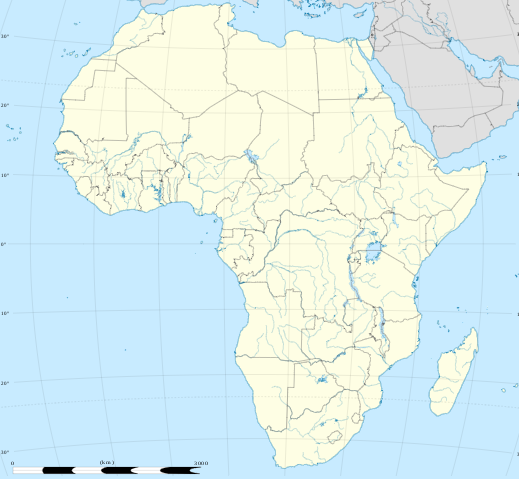On Aug. 26, 2023, the Gabonese military overthrew the government of Gabon, which was led by President Ali Bongo, who had been declared the winner of the nation’s 2023 election. The coup was led by Brice Oligui Nguema, a high-ranking officer and member of the Bongo family, who overthrew his cousin, Ali Bongo. This coup ended the 56-year rule of the Bongo family. The removal of a ruling government by an oppressive dictatorial junta is a major event for any nation, but this turn of events is no longer a unique sight in the region, which is labeled the Coup Belt by the UN Secretary-General. There have been over 11 coups in the Coup Belt since 2020, almost all of them successful.
This “Wave of Coups” in the Coup Belt has a variety of causes, both past and present. The Coup Belt refers to a region in West and Central Africa that has experienced a high concentration of military takeovers in recent years. Typically, when a coup successfully happens in this region, the international community doesn’t respond. This often causes a contagious effect where coup plotters in neighboring countries feel emboldened to do the same thing. All of these recent coups have largely been instigated by ruptured economies, higher prices, and unrest caused by the COVID-19 pandemic.
What is a Coup?
A coup is an illegal and overt attempt by the military or other civilian officials to oust current officials. Military coups are especially common in third-world nations. However, officials involved in these power changes often deny their classification as coups.
In Zimbabwe, for instance, a 2017 military takeover brought Robert Mugabe’s 37-year rule to an end. Mugabe, who had led Zimbabwe since its independence in 1980, was known for his authoritarian rule, economic mismanagement, and suppression of political opposition. However, one of the leaders of the takeover, Maj. Gen. Sibusiso Moyo, appeared on television at the time, flatly denying it was a military takeover. Similarly, in April 2021, after the death of Chadian leader Idriss Déby, the army installed his son as interim president to lead a transitional military council.
“Coup leaders almost invariably deny their action was a coup in an effort to appear legitimate,” said Jonathan Powell, a political scientist at the University of Central Florida who specializes in the study of military coups, in an interview with the BBC. Powell, along with researcher Clayton Thyne from the University of Kentucky, has identified over 200 coup attempts in Africa since the 1950s, with about half of them being successful.
What Caused the “Sahelian Epidemic” of Coups?
Each country affected in the Sahel has been affected by the contagious wave of coups for its own reasons, ranging from rampant corruption to election fraud and economic turmoil. The Sahel, a semi-arid region stretching across Africa just south of the Sahara Desert, has long been a zone of both cultural exchange and conflict. Historically, it has been shaped by pre-colonial empires, European colonization—particularly by France—and post-independence struggles with governance and stability.
Regardless of the specific reasons behind each coup, these countries have all experienced instability alongside a real contagion—COVID-19—which acted as a tipping point, rupturing the already weak yet growing economies of the fragile Sahel.
More entrenched issues, such as the lingering impacts of French colonization, have also contributed to mass instability. Yet three common factors have tended to enable such actions: times of acute crisis, the politicization of armed forces, and a self-perpetuating momentum.
First, all of the affected countries faced crises prior to the coups and experienced a variety of socioeconomic challenges. Dissatisfaction grows when political leaders do not effectively provide public services and are perceived as corrupt, eroding public trust. The recent political crises manifested differently.
Power struggles, such as those between civilian presidents attempting to extend their terms beyond limits, proved impactful in Guinea and Gabon. In Mali and Burkina Faso, instability and discontent worsened as Islamic jihadist groups, who use violence in the name of Islam to challenge state authority, expanded their insurgencies, launching attacks that further undermined government control and public security.
A military coup is also far more probable in places where the armed forces have previously intervened in politics, which has happened in approximately 40 percent of sub-Saharan African nations, with West Africa at the center. According to research by Patrick McGowan, between 1956 and 2001, sub-Saharan Africa experienced 80 successful coups, 108 failed attempts, and 139 reported plots (Cambridge University Press). Given that Africa has 54 nations, and at least 45 of them have faced at least one coup attempt since 1950, this equates to approximately 83% of the continent experiencing military intervention. These figures highlight the persistent role of the military in political instability, particularly in West Africa, which has seen multiple recent coups in countries like Mali, Burkina Faso, and Niger.
The specific interests of military members often trigger coups. The 2012 coup in Mali stemmed from dissatisfaction with the government’s ability to handle rebel groups causing heavy casualties around the country. In the recent case of Niger, coup leader Omar Tchiani acted preemptively after facing the threat of removal as head of the Presidential Guard—a position he had held since 2011. President Mohamed Bazoum sought to consolidate civilian control and reduce military influence, prompting Tchiani to seize power to protect his position and align with broader military discontent over security failures.
These past coups breed more coups. Successful military takeovers in other countries may inspire additional coup plotters and create a self-sustaining momentum. Additionally, some juntas have turned to external powers for support, with Russia emerging as a key player in recent years. In Mali, the ruling junta strengthened ties with Russia, particularly through Wagner Group mercenaries, as an alternative to Western security partnerships. While not the primary motivation for all coups, the prospect of backing from Russia or other foreign actors can provide additional incentives for military leaders seeking legitimacy and resources.
Democracy in Shambles from Coups
Each nation in the Coup Belt has unique impacts from governmental instability, but each has seen an ominous trend from these coups. In most cases, a military commander stages a coup to oust a democratically elected leader. This not only creates instability but also shifts the region away from democracy.
African leaders sounded the alarm over Gabon’s coup, warning that it marked a significant setback for democracy on a continent where decades of hard-won progress are eroding. “Africa has suffered a serious setback,” stated Kenyan President William Ruto.
For the United States and its allies, the coup raised urgent questions about the need to intervene in the fight against Islamist militants in the Sahel. Insurgents linked to Al Qaeda and the Islamic State—jihadist groups that have exploited regional instability—are rapidly gaining ground, seizing vast swaths of land in these developing nations. Much of the Sahel overlaps with Africa’s newly formed, coast-to-coast Coup Belt.
“I’m very worried that Sahelian Africa is going to melt down,” said Paul Collier, a professor of economics and public policy at Oxford’s Blavatnik School of Government.
How Can We Address the Coups?
It is imperative to adopt a resolute stance against military overthrows and strengthen international and regional norms against coups in order to curb the spread of such actions. Professionalizing the armed forces can assist with this effort.
First, the military must remain under stable civilian governance and refrain from involvement in politics. Second, professional armed forces that are capable of addressing and preferably deterring security challenges, such as the jihadist insurgencies which have indirectly led to the overthrows in Burkina Faso, Mali, and Niger. Direct military support continues to be necessary if security is not to further deteriorate. However, any long-term strategy requires tackling the socio-economic and political root causes of the coups and other manifestations of instability.
The long-term solution lies in socio-economic and political transformation. The short-term solution can be found in a military force separate from politics, a force whose goal is to preserve democracy.
Africa has the chance to be a center of economic growth and prosperity as the chains of colonialism break. However, in order for this growth to occur in the coming decades, an overall transformation of these political systems must happen. As a means to eradicate the rampant corruption, defeat the various jihadist rebel groups, and bring back trust in the democratic process among the people in these nations, a strong stance against military coups and breaking the normalization of coups in the region, as well as a group away from politics that enforces the rules of democracy, must be implemented. For the future of the Sahel and the developing world as a whole.
The views and opinions expressed in this article are those of the author(s) and do not necessarily reflect the official policy or position of The Cardinal Chronicle. Any content provided by our journalists is of their opinion and is not intended to malign any religion, ethnic group, club, organization, company, individual or anyone or anything









